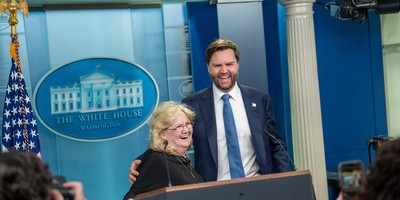Last month, a young man posting on a Website dubbed "The Urban Prankster Network" (Headquarters for Global Agents of Stealth Comedy!) suggested a novel way to cool off the city of Austin, Texas, when the inevitable hell of a Texas summer bakes streets and fries brains: a city-wide water gun and water balloon war waged by a "flash mob."
It could happen. American "flash mobs" often involve goofy stunts -- the "digital social network" and "cell phone with text-message" age equivalent of 1950s-era collegians cramming sophomores into a phone booth (when phone booths still existed).

A flash mob organizer might send four accomplices a message like this: Paint yourself blue and show up at Sixth and Congress in two hours. In concept, the ability to communicate quickly and virally (think exponents -- each friend contacts four more friends, and those friends four more) quickly multiplies the number of blue-painted crazies unexpectedly crowding a downtown sidewalk.
A couple of years ago, I overheard two mothers discussing a high school party that included a "flash mob-like" activity. A text message provided the insta-mob location. Alas, one of the moms had to drive her son to and from the mob scene. That's an old lesson reinforced: Even improvised anarchy may require parental logistical support.
San Francisco, however, is fed up with flash mobs that leave litter. The San Francisco Chronicle assured its readers that the city's looming crackdown was not "political, ideological or cultural," but a Valentine's Day flash mob pillow fight left heaps of icky, sticky feathers for sanitation workers -- in other words, clean-up costs. The pillow brawl was billed as "the fourth annual," which indicates less flash and more coordination. Unless event organizers take responsibility for the trash, the city may shut the next one down. Here's the bumper sticker: Leave Trash? No Flash.
Recommended
One hundred seventy-nine years after the publication of his "Democracy in America," French aristocrat and author Alexis de Tocqueville remains the most insightful analyst of American political mores. Tocqueville didn't anticipate flash mob technology, but he understood them in America's context. He noted in volume two of his masterpiece that Americans formed "public associations" for many reasons, including entertainment. Freedom of association flows from the First Amendment's guarantee of freedom of peaceable assembly.
Tocqueville also noted that this freedom is "dangerous." In Europe, crowds signaled revolt. American democracy had produced a paradox, one that had a subtle but profound national security dimension. Tocqueville concluded the "liberty of association" had become "a necessary guarantee against the tyranny of the majority." Civil associations -- presumably even pillow fights -- facilitated political association, and free political association kept American democracy vibrant. Association was the "dangerous means" for thwarting the majority's "omnipotence."
Tocqueville's observations and San Francisco's impending trash-bred quash of flash mobs led me to the Internet. I typed in "flash mob" and "tea party." The Google search produced an article on "anti-stimulus" protests occurring throughout the United States. Scores of demonstrations against congressional "pork" spending, congressional "earmark" spending, lack of oversight in bailout spending and congressional corruption (Sen. Chris Dodd, D-Conn., is a particular target) have sprung up around the United States.
In some cases, several hundred people have gathered -- organized using "flash mob" communications techniques. The tea party protestors connect their contemporary gripes with the same anti-tax and anti-autocrat sentiment that spawned the Boston Tea Party of 1773. The Internet and cell phones are simply swifter couriers for delivering messages from bloggers and protest organizers, the rough contemporary equivalents of the "committees of correspondence" that linked American revolutionaries in the 18th century.
Yes, hyper-left San Francisco insists it has no ideological issues with flash mobs ... but tyrants do. In 2006, Zimbabwe's military cracked down on cell phone companies because they provide "independent connections" (i.e., communications) inside and outside the country. This threatened "national security." The military wanted to limit the outflow of information on Zimbabwe's terrible internal conditions and deny demonstrators a tool for organizing.
Tocqueville wrote: "It cannot be denied that the unrestrained liberty of association for political purposes is the privilege which a people is longest in learning how to exercise."
Americans, he concluded, had learned. The privilege, and its enabling knack, remains revolutionary.

























Join the conversation as a VIP Member